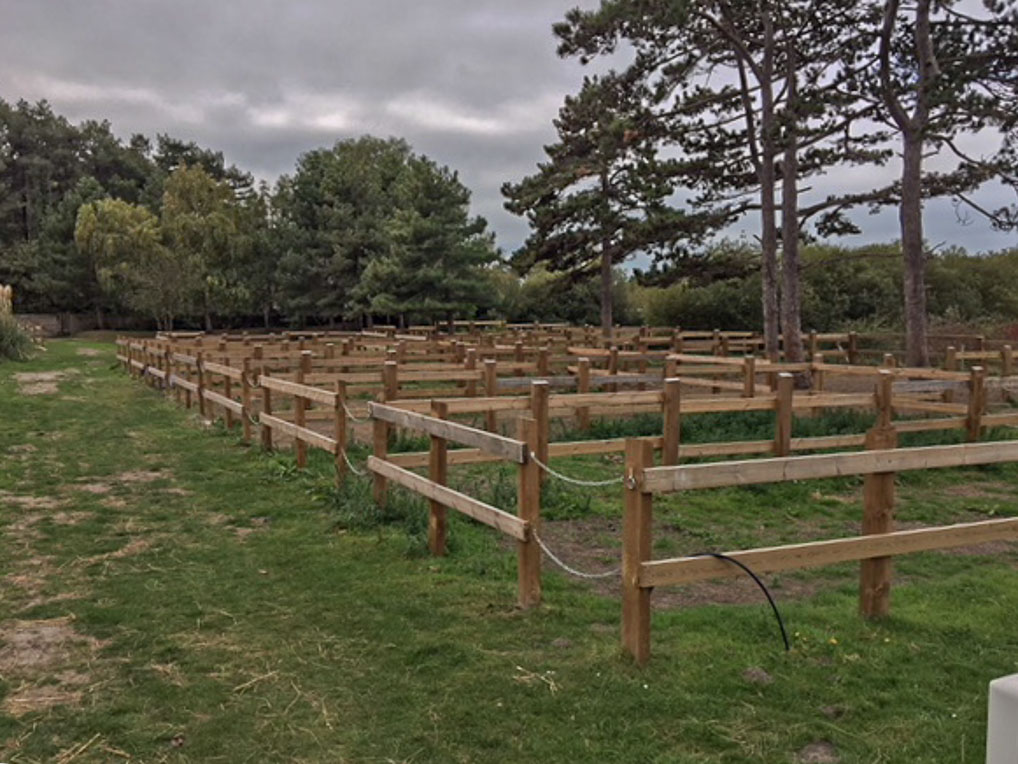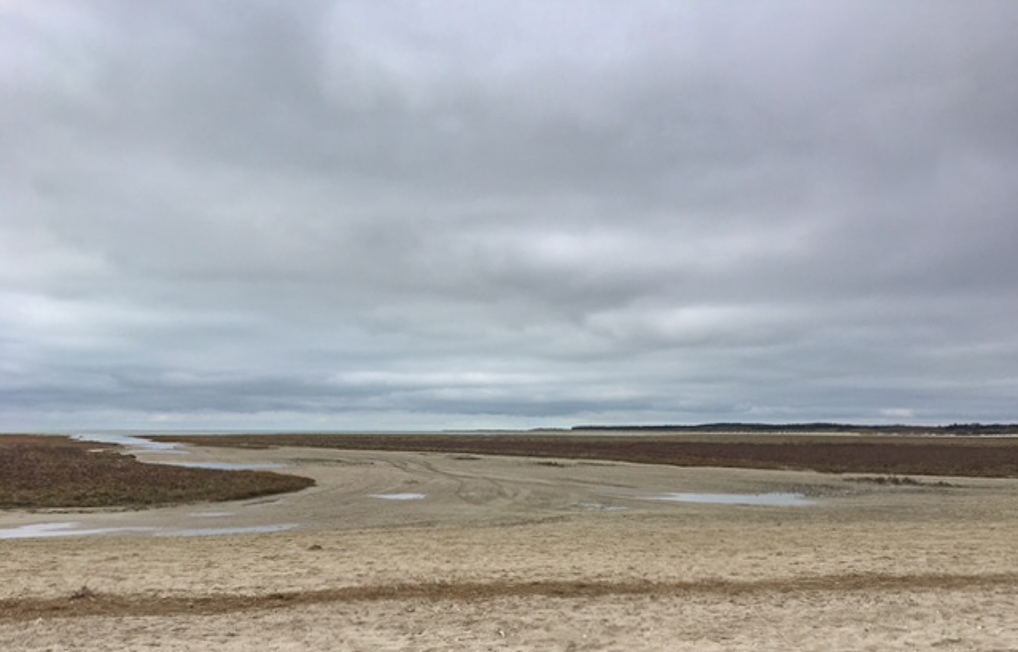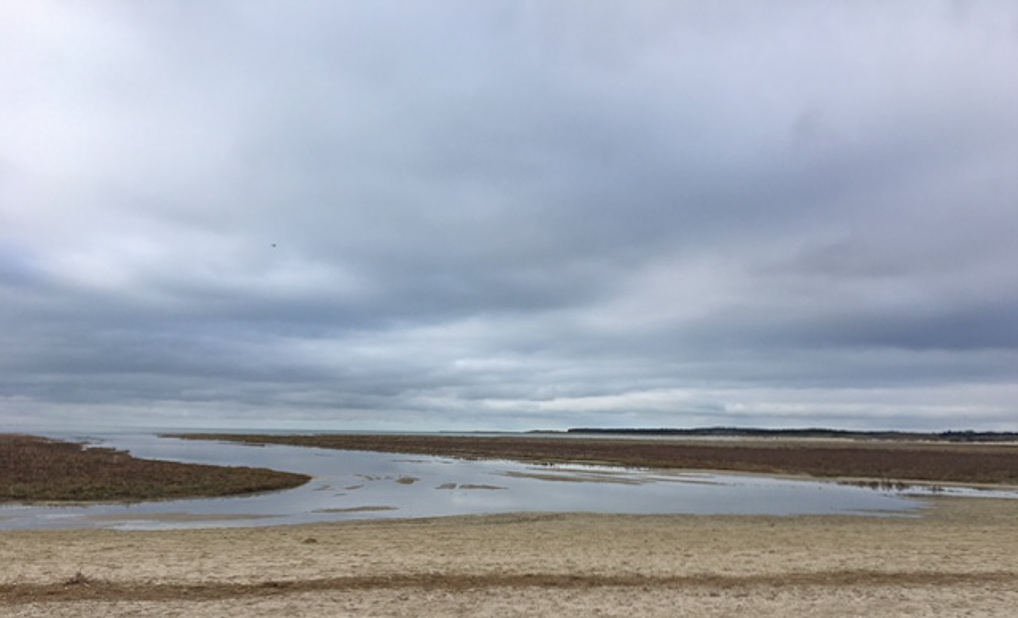Yesterday was probably the most tedious day of the trip. We decided that instead of finding yet another Beau Village to overnight in we would travel all the way to the English Channel coast to give the dogs a last day on the beach before our return home. So it was 280 miles, all on non-toll roads. A total of 7 hours driving for me. We finally reached Camping Les Trois Sablieres (50.249033, 1.598967) late in the afternoon and it’s a pretty sad place out of season and at €17 a night on ACSI.
A slightly unusual feature of our campsite is that it is possible to bring your horse with you on holiday here! At the back of the site are dozens of small paddocks where horses can be kept, presumably so you can then take them riding on the beach. Most strange.

Horses Tents!
Today the most exciting thing we did was watch the tide come in! The campsite is on the edge of the estuary for the River Somme and it is a National Nature Reserve. It reminds me very much of where I grew up in England on the Wash, except here they’ve got sand! When you walk the 300 metres or so to the bay there is, rather strangely, a very sandy beach and then beyond that salt marsh.
We started to walk out towards the sea, but I could sea the creeks on the salt marsh were filling up and so to avoid getting cut off we went back to the beach and literally watched the tide come in. Because there is such a shallow gradient and there were no waves, we could see the water move up the sandy sections at slightly slower than walking pace. A little bit more exciting than watching paint dry. To add to our exhilaration, through my binoculars, I could see hundreds if not thousands of Shellducks feeding on the margin between the marsh and the sea. There were also masses of black headed gulls, some little egrets, cormorants and some other overwintering ducks of the dull brown kind which are impossible (for me) to identify at such a distance (Shellducks are very distinctive, even at distance). Finally I spotted a large seal also feeding just off the marsh.

The most exciting thing today: low tide

High Tide!!
The dogs needed there Pet Passports marking up before our return so I booked an appointment at the local vet. Before dogs can return to the UK they must be given worming treatment by a qualified vet and have their documents stamped. Our vet was from Belgium and spoke impeccable English. He explained he grew up in Antwerp (a Flemish city) in a French family, so spoke French at home, was taught at school in Flemish and it was compulsory in the Flemish part of Belgium to learn a second language, which is nearly always English. He also spoke German – put us Brits to shame!
Melek didn’t want to inconvenience us with a second trip to the vet, so developed two sores this morning, which the vet was also able to deal with. They are called “hotspots” and he has had several during his life, but the vet today was able to give us a much better explanation than our English vets, on what causes them. Our total bill for the two dogs Pet Passports and Melek’s treatment, including three different medicines, was only just over €60. The bill for Melek’s hotspots alone would be over £100 in the UK.
Apparently they get British customers getting planned treatment carried out with them in France to save money. They had, that morning, done a teeth clean under general anaesthetic, on an English dog and it had cost less than €100. We had Mabel’s teeth cleaned by our own vet, just before our trip, the cost was £400!! I don’t understand why British vets are so expensive. We’ve had the dogs treated now in Bulgaria, Latvia, Spain and France and they have all been at least half the price of similar procedures in our home town.
Tomorrow is the last day of our trip and we intend to find an aire near the Channel Tunnel to stay.
